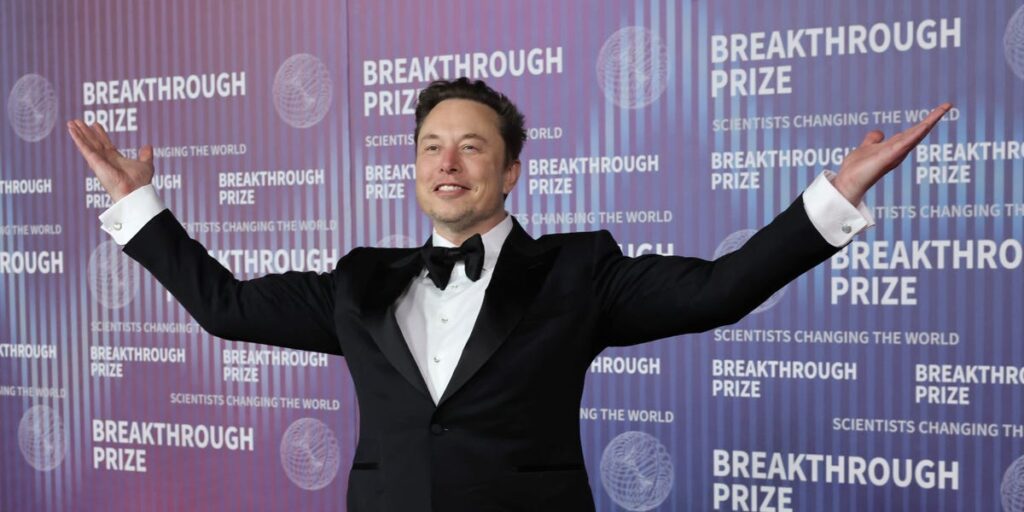- Elon Musk is reportedly close to approving fully self-driving technology in China.
- Tesla will face competition from many local rivals who have rolled out their own versions of FSD.
- One local EV executive welcomed the move, saying regulators should “let a hundred flowers bloom”.
Elon Musk may have just scored a big victory in China, but Tesla's problems there are unlikely to go away.
Tesla is moving closer to gaining approval to operate its fully self-driving technology in China after CEO Elon Musk made a surprise visit to the country over the weekend, according to multiple reports.
Getting FSD approved in China would be a big win for Mr. Musk, who has staked Tesla's future on self-driving cars and robotaxis.
But the company's fortunes in China are unlikely to change anytime soon, as Chinese consumers will be spoiled for choice when it comes to driver-assistance software.
As competition intensifies in China's EV market, many of Tesla's local rivals are rolling out their own versions of Tesla's Autopilot and fully self-driving technology available in China.
Guangzhou-based EV startup XPeng's City Navigation Guide Pilot (NGP) system, first piloted in 2022, will be available across China, with plans to expand internationally. It's in progress.
Similar to Tesla's fully autonomous driving, NGP can overtake, recognize traffic lights, and change lanes.
Smartphone makers turned EV makers Huawei and Xiaomi are also competing to release their own FSD rivals.
Huawei plans to provide advanced driving systems with features similar to FSD and XPeng's NGP in several EVs developed in partnership with other Chinese car companies. Xiaomi has included its own version in its first EV, the SU7.
Deliveries of the SU7 will begin in March, and Xiaomi's driver assistance technology will be fully available in China by August.
Among other companies developing their own self-driving capabilities, Nio's NOP+ driver assistance software is available in 99% of China's cities, according to CEO William Li.
The reaction from Tesla's rivals to the prospect of FSD approval has also been bullish.
“Today, many friends asked me what I think about FSD's entry into China, and I especially welcome Tesla FSD's entry into China,” Xpeng CEO He Xiaopeng said on Chinese social media platform Weibo. wrote.
Xiaopeng said he was glad that regulators had “bloomed flowers” by introducing rival self-driving systems to China, and said Tesla had “very good self-driving technology and brand.” Ta.
“If the past decade was the decade of new energy, the new decade will be the decade of smart cars,” he added.
Not to be outdone, Tesla's biggest rivals are also joining the race to develop smart driving features.
BYD, which briefly overtook Tesla as the world's largest EV producer, announced in January that it would invest 100 billion yuan ($14 billion) to develop new AI-powered features for its vehicles.
The Warren Buffett-backed company has already made Navigate on Autopilot, its own version of Tesla's Autopilot driver assistance feature, available on the Denza N7 EV, and has sold 40,000 units of the feature to its Denza N7 EV. The company plans to install it on all of its vehicles priced over $1,000.
Tesla faces stiff competition in China due to the explosion of cheap EVs made by local companies such as BYD.
The U.S. automaker lowered prices in China earlier this month. The company's market share in China shrank from 10.5% to 6.7% in 2023, according to Bloomberg data.
Tesla did not immediately respond to a request for comment outside of normal business hours.


